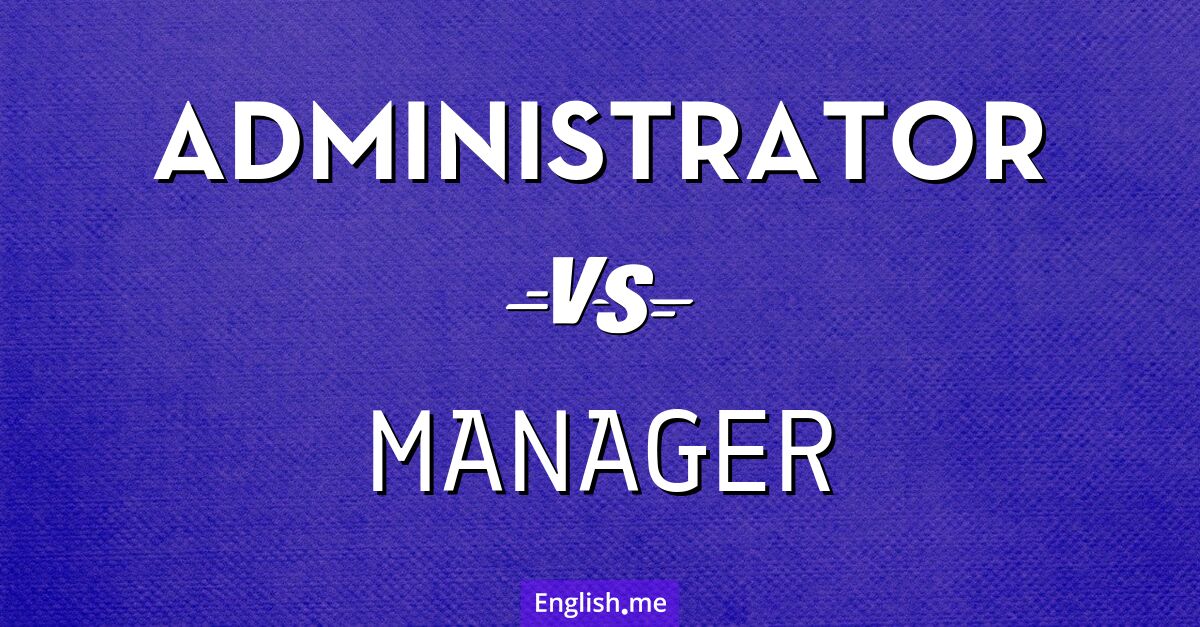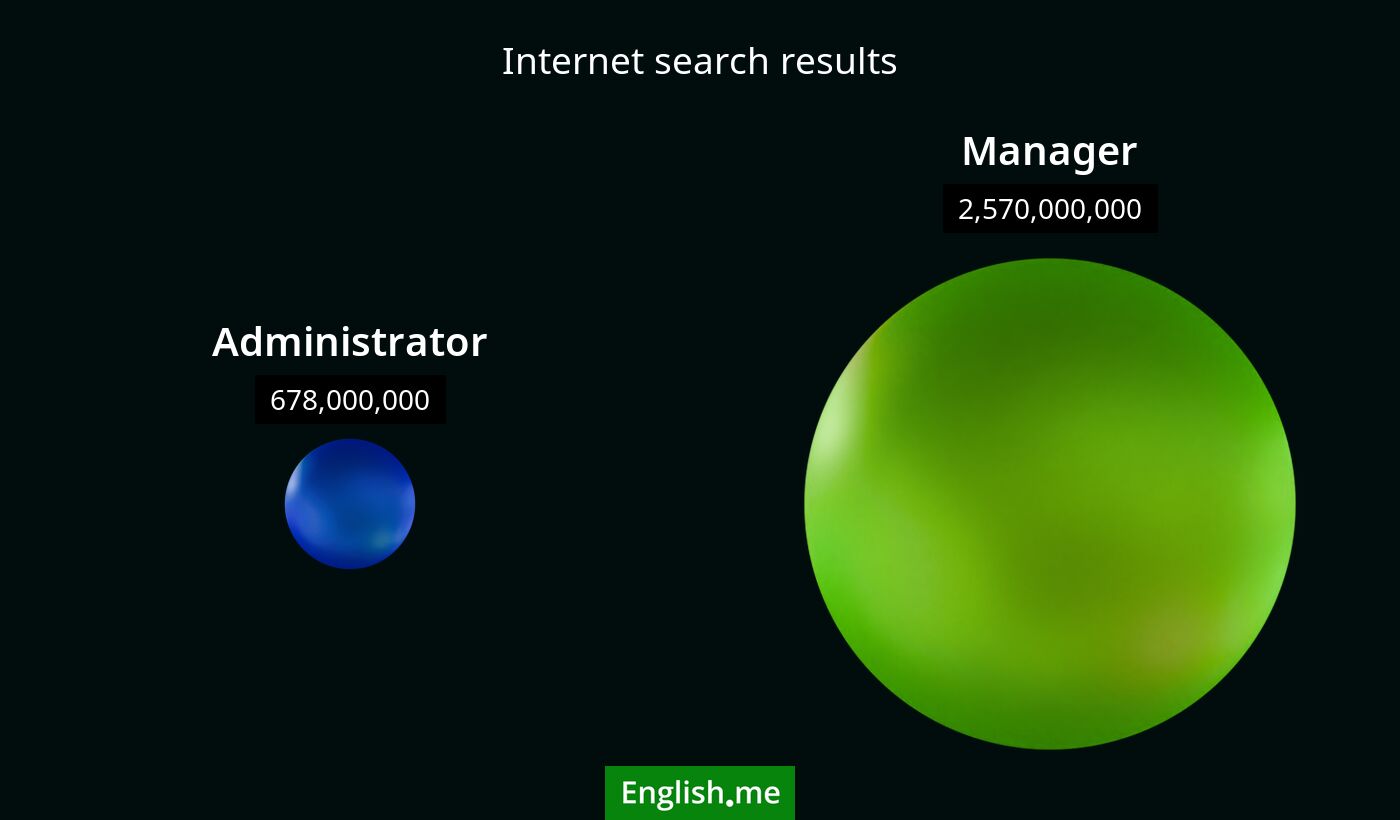Exploring the roles: "administrator" vs. "manager"

 What is similar?
What is similar?
Both "administrator" and "manager" refer to roles involving oversight and control within an organization. They are responsible for ensuring operations run smoothly and efficiently. Both roles require skills in leadership, problem-solving, and communication.
 What is different?
What is different?
An "administrator" typically focuses more on executing policies, handling day-to-day operations, and ensuring compliance with regulations. They may be more involved in clerical duties, paperwork, and organizational logistics. A "manager", on the other hand, often has broader responsibilities that include leading a team, strategic planning, setting goals, and making high-level decisions. Managers are usually more directly responsible for achieving specific business objectives.
 Which one is more common?
Which one is more common?

 Examples of usage
Examples of usage
Administrator- She is the administrator responsible for coordinating all office activities.
- The school administrator implemented new policies to enhance student engagement.
- As a network administrator, he ensures that all systems are functioning properly.
- The store manager oversees the daily operations and staff performance.
- As project manager, she led a team of engineers to complete the new product design.
- He works as a financial manager, analyzing and planning the company's finances.

 English
English español
español française
française italiano
italiano deutsche
deutsche 日本語
日本語 polski
polski česky
česky svenska
svenska Türkçe
Türkçe Nederlands
Nederlands